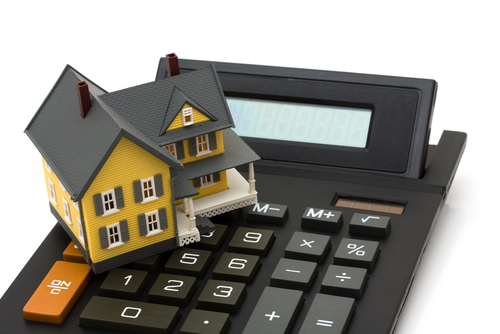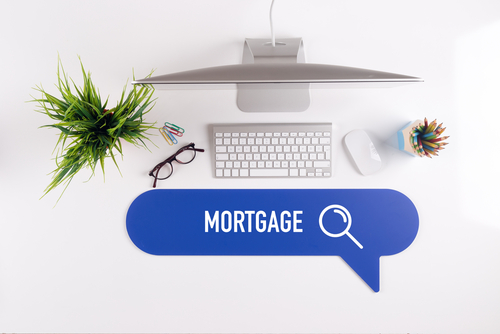
There are plenty of online resources and tools to help you count the cost of buying a house. A home purchase is a major decision and one of the largest investments you’ll make. Some people fear getting in over their heads. With a purchase of this magnitude, there’s the risk of being house poor. A bank will look at your income to determine your pre-approval amount. But sometimes, lenders pre-approve applicants for more than they can afford, so you have to use discernment. The good news is that an online mortgage calculator can help you decide a comfortable amount to spend on a property, as well as provide information about mortgage costs. Here are four ways to utilize a mortgage calculator when shopping for a home loan. 1. Estimate mortgage payment A mortgage calculator takes three variables into consideration: sale price, mortgage term and interest rate. This is an excellent tool for estimating your mortgage payment. If you are familiar with average prices of homes in your area, but not sure if you can afford to purchase within this range,… Read more

Getting a mortgage and buying a home requires proof of employment and a regular income source. However, it takes more than a job to qualify for a purchase. You also need a credit history. A lender will use your credit history to determine whether you can be trusted to repay a mortgage loan. Some people apply for a home loan without understanding how credit affects a bank’s decision. The more you know about credit, the more you can prepare for a home loan. Here are four things you should know about credit and buying a house. 1. It doesn't have to be perfect Some people put off purchasing a home because they think their credit has to be perfect to qualify for the loan. This isn't the case. It’s true that most lenders will not approve your application if you have more than one 30-day late payment within the past 12 months. They will, however, consider an approval if you have a minimum credit score of 620 (500 to 580 if you’re applying for an FHA home loan). So if… Read more

A foreclosure is a traumatic experience, especially if you did everything in your power to remain current on your home loan and keep your property. Unfortunately, if you default and miss several mortgage payments, your lender has no choice but to foreclose. A foreclosure has an effect on your future, but the damage doesn't last forever. It is possible to rebuild your credit, and luckily, the foreclosure disappears from your credit report after seven years. But although your long-term outlook may seem brighter, you’ll still have to deal with the immediate effects and understand how a foreclosure affects your future now. 1. It is harder to rent a house After a foreclosure, it may be harder to rent a house or an apartment. Some landlords check credit reports, so they’ll likely see a foreclosure in your recent past. As a result, they may charge a higher security deposit or require a cosigner on the lease. A cosigner is someone with an excellent credit history. This person doesn’t have to occupy the home or apartment, but they are responsible for the… Read more

A 30-year mortgage is a favored product for many homebuyers. And since these mortgages offer comfortable, affordable mortgage payments, many lenders recommend this type of loan. But you shouldn’t select a 30-year mortgage simply because a lender dangles it in your face. It’s crucial to have an in-depth dialogue with your loan officer and familiarize yourself with various products. After a little research, you may come to the realization that another mortgage program is a better fit for your situation. Here are three possible alternatives to a 30-year mortgage. 1. Three, Five or Seven-year ARM A 30-year fixed-rate mortgage might be appropriate if you’ll live in the house long-term, and if you're looking for a reasonable monthly payment and an interest rate that doesn't change. But if you know you’ll sell the house within three, five or seven years, talk with your lender to see if you’re a candidate for an adjustable-rate mortgage. ARMs aren’t the right fit for everyone. A hallmark feature of these mortgages is the temporary fixed rate followed by periodic rate adjustments. Many fear and keep… Read more

Getting your mortgage from an online-only lender is one way to get a lower interest rate. These lenders don't have brick-and-mortar locations, and less overhead means they can afford to offer their customers cheaper rates. This can result in a less expensive monthly payment for you, and you'll pay less interest for your house. Some online lenders also streamline the process, making it simpler and faster. But before you apply for a mortgage online, there's a few things you should know. 1.Do your research It doesn't matter if an online mortgage company has several commercials or a fancy website, do your research and read reviews to make sure you're working with a trustworthy company. It can be hard to distinguish a good mortgage company from a bad one. Reading online reviews is a good start, plus you can check with the Better Business Bureau to see if the company has received any complaints. If you have friends or relatives who’ve recently used an online mortgage company for a purchase or refinance, get recommendations. If they had a positive experience with… Read more







